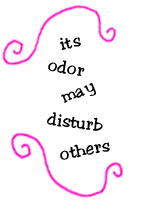 This week, I’ve pulled out something completely frivolous. Let’s just say it’s in the spirit of getting back to normal. This is from Manners for Millions, which was penned by Sophie C. Hadida, who instructs her readers in the introduction to “take notes upon the points which reveal to you your own shortcomings.” While you’re doing that, I’m going to grab a banana and head to the train station. Bye!
This week, I’ve pulled out something completely frivolous. Let’s just say it’s in the spirit of getting back to normal. This is from Manners for Millions, which was penned by Sophie C. Hadida, who instructs her readers in the introduction to “take notes upon the points which reveal to you your own shortcomings.” While you’re doing that, I’m going to grab a banana and head to the train station. Bye!
1950: Odoriferous Food
![]() I once heard a young man say, ‘I should care whether my girl friend likes onions or not. If I want to eat onions, I eat them. If she doesn’t like it, she knows what she can do.’
I once heard a young man say, ‘I should care whether my girl friend likes onions or not. If I want to eat onions, I eat them. If she doesn’t like it, she knows what she can do.’
Such a person is the personification of selfishness. The poor girl may be helpless. She has no other boy friend at the present time, and is forced to go out with Jack, who chooses to eat onions that evening. No one wants to be accused of having halitosis. Eating onions is courting a form of halitosis which is really more objectionable than the unavoidable kind, because the implied discourtesy irritates.
It is discourteous to order at a restaurant any food which through its odor may disturb others at table. Such foods are strong cheese, onions, chives, garlic.
It is inconsiderate for the same reason to eat oranges, bananas, and certain other foods on trains or boats around neighboring passengers who may be ill by their odor.![]()
Source: Hadida, Sophie C. Manners for Millians. New York: Permabooks, 1950.
~ pp. 83-84 ~